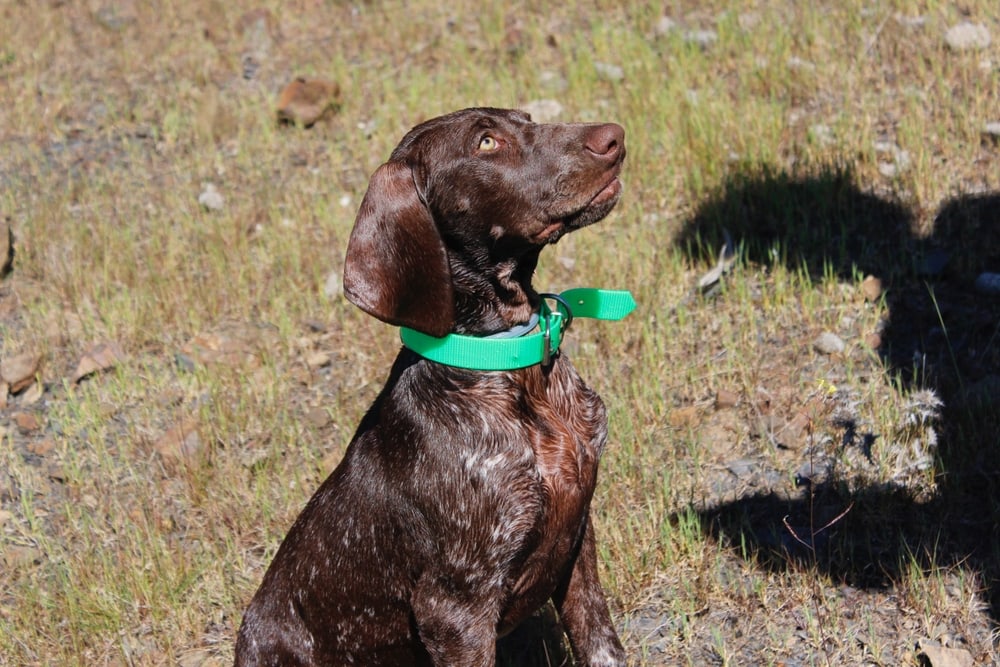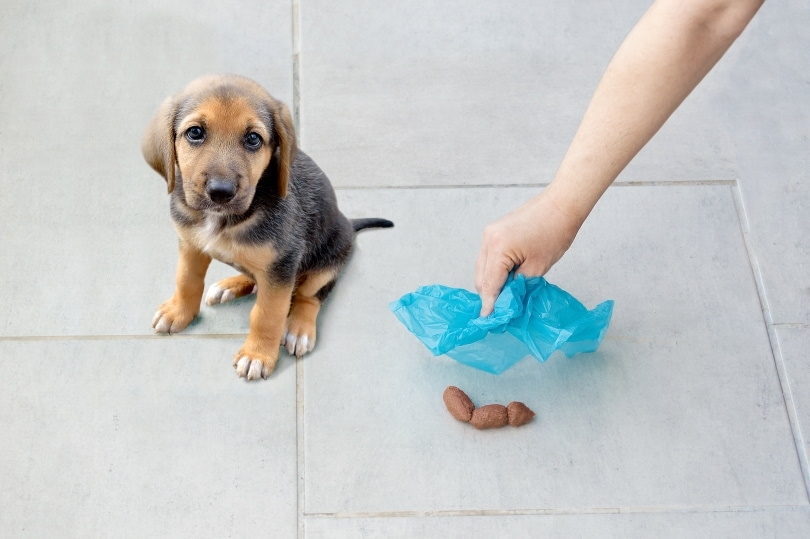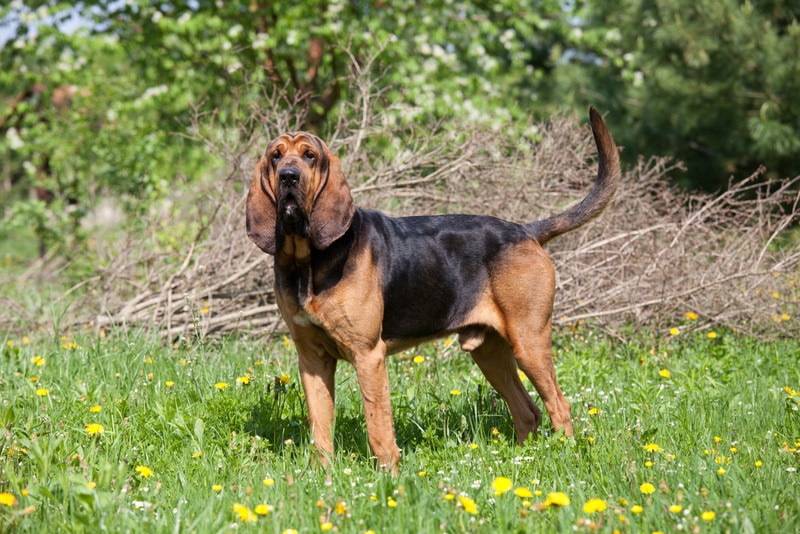Why Do Dogs Play With Their Food? Vet-Reviewed Facts

Updated on
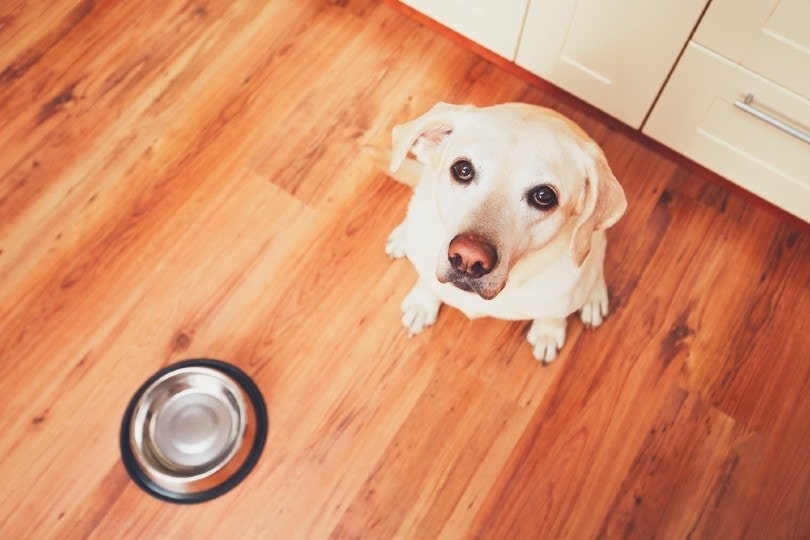
Dogs are known as man’s best friends for a reason. They are always happy to see us, love spending time with us, and are always eager to please. One of the things that dogs love the most is food. Whether it’s getting a treat for doing a good job or being given a bite of our dinner, dogs love to eat.
Dogs were originally bred to help with hunting. As dogs became domesticated, people started to feed them table scraps and dog food. Whatever they are eating, dogs are also notorious for being messy eaters. Food can often be found all over the floor and furniture after a dog has finished eating. This is partly because many dogs have been known to play with their food before they eat it. You may be wondering why some dogs behave in this manner—in this article, we will cover a few reasons why dogs might play with their food.
The Top 4 Reasons You Dogs Plays With Their Food
1. Boredom
One possible explanation for why dogs play with their food is that they are bored. Dogs are highly intelligent animals and often enjoy mental stimulation. Dogs may become bored if they are not given enough exercise or if they are left alone for long periods of time. When they are bored, they may look for ways to entertain themselves, and playing with their food can be one way to do that.
There are a number of ways to alleviate boredom in dogs, depending on the dog’s personality and what kinds of activities they enjoy. If the dog is inactive, it’s important to provide them with plenty of toys and puzzle games that challenge them mentally and physically. Dogs who are more active can be given opportunities to explore new environments and play with other dogs or people. A bored dog is often an unhappy dog, so it’s important to find ways to keep them entertained.
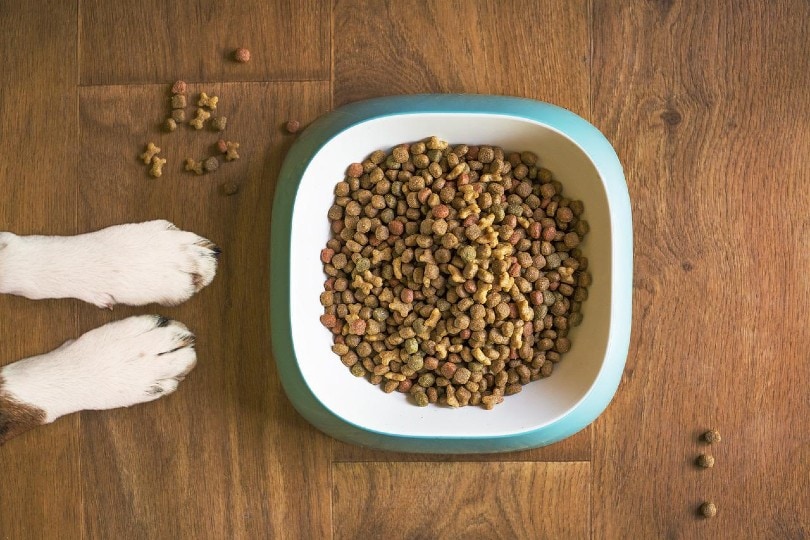
2. Food Boredom
One potential explanation for why dogs play with their food is that they may become bored with it, leading to a lack of stimulation. This can be particularly common when dogs are fed the same food day in and day out. When this happens, the dog may try to find ways to make the experience more interesting, such as playing with their food. This can lead to problems such as refusal to eat, which can lead to malnutrition. Addressing a monotonous diet may help to combat food boredom in dogs.
One possible way to alleviate food boredom in dogs is to vary their diet by incorporating different textures and flavors into their food. This can be done by alternating between wet and dry food, mixing in different types of kibble. Another option is to freeze Kongs or other rubber toys filled with dog food, which will keep the food fresh and provide some stimulation and entertainment for the dog.
3. Instinct
Manipulating food with their mouths and moving it to other areas may be a natural instinct. Wild canids have been observed to carry off parts of their food away from other pack members. Dogs are predators and as such, they are drawn to anything that resembles prey. In the wild, this would include small animals, but in the home environment, it can also include food items like meat or bones.
The instinctual behavior exhibited by dogs when they play with their food is also due to their natural scavenging tendencies. This means that the behavior is ingrained in their DNA and is not something that can be taught. Dogs may play with their food as a way of testing whether or not it is safe to eat.
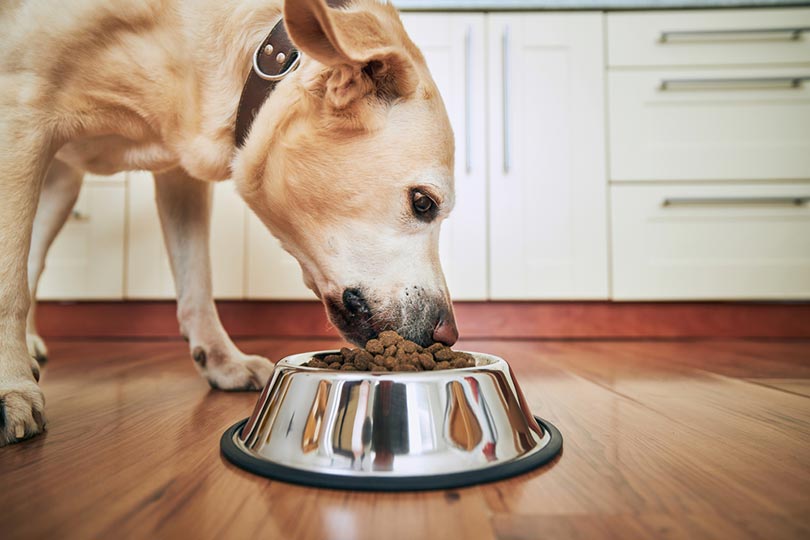
4. Overfeeding
Overfeeding our dogs can lead to overexcitation and stimulate dogs to play with their food simply because of the overabundance of food. This can lead to them pawing, chewing, and scattering their food around the room, as well as eating too quickly, which can cause digestive problems. To avoid this issue, it is important to carefully monitor how much your dog is being fed and to provide them with appropriate toys or activities to keep them occupied when they are not eating. Consult with your veterinarian if you have any questions or concerns about your dog’s nutritional needs.
Make sure you’re feeding your dog the right amount, check out our dog food calculator here:
The exact amount of calories an individual animal needs to maintain a healthy weight is variable and influenced by many factors including genetics, age, breed, and activity level. This tool is meant to be used only as a guideline for healthy individuals and does not substitute veterinary advice
Changing the Rules at Mealtime
One way to stop dogs from playing with their food is to change the rules at mealtime. This can be done by placing their food in a bowl or container that is too heavy for them to move, or by keeping them in another room until they are finished eating. When it’s not mealtime, you can also remove the bowl from your dog’s reach when they are not eating. A heavier bowl is difficult to move because it has a lower center of gravity. This makes it more likely to stay in place when bumped or moved. In addition to bowl choice, being cognizant of treats is important. If you feed too many treats (vets advise no more than 10% of daily caloric intake to come from treats), it can cause your dog to not know the difference between snacks and meals. Treats that can be chewed on for a long time (rawhide chews, etc.) could be replaced with chew toys that don’t contain food ingredients.
Final Thoughts
In conclusion, there are many reasons why dogs play with their food. Some of these reasons include having fun, practicing “hunting” skills, and dealing with boredom. By understanding why dogs play with their food, we can better understand their behavior and provide them with the best possible care.
Featured Image Credit: Jaromir Chalabala, Shutterstock




